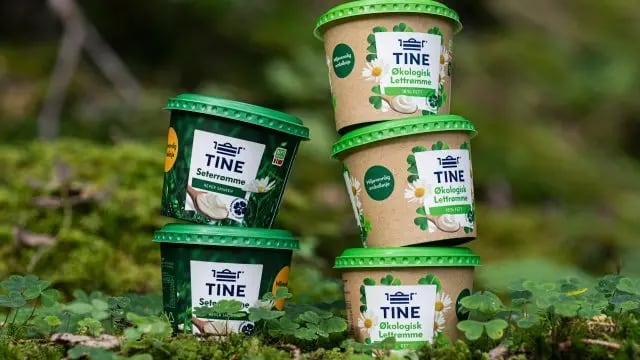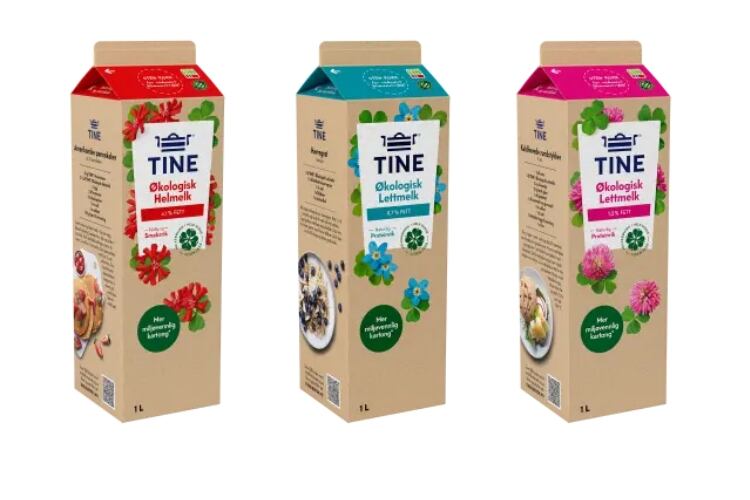However, to further reduce the climate footprint, TINE is launching its organic milk in a more environmentally friendly carton. The renewable plastic cap has been replaced with an improved version of the classic "fold out and bend back" opening.
Bjørn Malm, head of sustainability at TINE said it is the first company to remove the renewable plastic cap.
“The Norwegian people demand more environmentally friendly packaging, and we want to give them that,” Malm said.
“In 2016, TINE was the first to release milk cartons in 100% plant-based renewable material. As a step forward in our continuous work to reduce the climate footprint, our organic milk now comes in unbleached and lighter packaging. It produces a more environmentally friendly carton with an even lower carbon footprint than regular cartons.”
He added that by removing the renewable plastic cap on TINE's organic milk, the company will reduce its plastic consumption by at least five tonnes every year.
TINE launches new and improved version of cardboard cup
Last year, TINE introduced a cardboard cup that it later withdrew following customer input. It promised at the time it would bring back the cardboard pots – and now it has.
The new cardboard packaging has been rolled out in stores across Norway, initially on TINE organic sour cream and TINE sour cream. The long-term goal is to reduce TINE's plastic consumption by 500 tonnes annually.

The new cup also consists of a plastic lid made of almost 80% recycled plastic, which is in line with TINE's ambition that all its packaging will be based on renewable or recycled raw materials by 2023.
“Now we hope Norwegian consumers will once again join us and test the cardboard cup, so that together we find a solution that makes it easier for most people to make good environmental choices,” Malm said.

